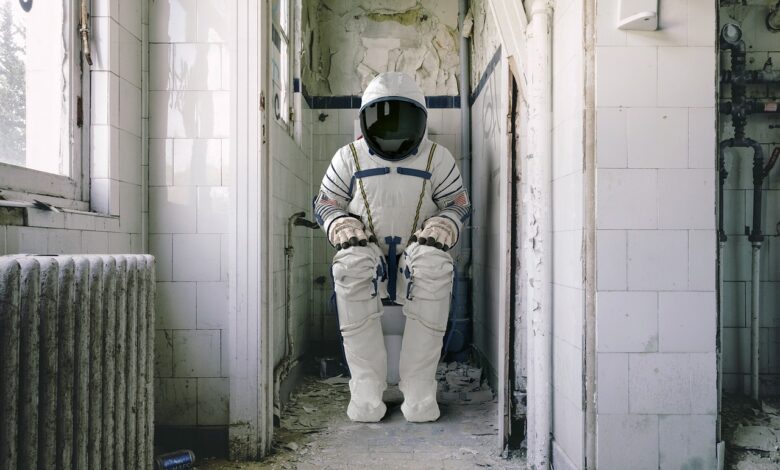Doctors advise against sitting on the toilet for longer than 10 minutes

Let’s face it – individuals often take their phones to the restroom. I have been guilty of it myself, and it is likely that someone is currently reading this article while on the toilet.
A three-minute visit to the bathroom can quickly become 15 minutes of reading, scrolling, and posting. It may appear harmless while you’re using the toilet. Nevertheless, professionals caution that extended periods of sitting on the toilet can negatively impact your health.
According to Dr., sitting for long periods of time has been linked to a higher chance of developing hemorrhoids and weakened pelvic muscles. Lai Xue, a colorectal surgeon at the University of Texas Southwestern Medical Center in Dallas.
“When patients come to me with concerns, one of the key areas we need to focus on is spending a significant amount of time on the toilet,” Xue stated.
Potty problems from prolonged sitting
Individuals should aim to spend an average of five to 10 minutes on the toilet, as advised by Dr. Xue. Farah Monzur is an assistant professor of medicine and director of the Inflammatory Bowel Disease Center at Stony Brook Medicine on Long Island, New York.
Why is it concerning if you remain for an extended period? To begin, here is a brief physics lesson. Gravity helps keep us firmly planted on the ground, but it also increases the effort needed for the body to circulate blood back to the heart, according to Xue.
The unique oval shape of the toilet seat can put pressure on the buttocks, causing the rectum to be positioned lower than when sitting on a regular chair. With gravity pulling down the lower body, increased pressure impacts blood circulation. Xue explained, “It becomes a one-way valve where blood enters, but cannot easily go back.”
Consequently, veins and blood vessels around the anus and lower rectum swell with blood, raising the likelihood of hemorrhoids. Avoid forcing it, as straining can further elevate pressure and lead to hemorrhoid development. Individuals who use their phones while on the toilet may lose track of time, according to Monzur.
This can lead to sitting for extended periods and straining muscles to have a bowel movement. It is important to note that medical professionals are able to detect these behaviors. Currently, there is a rise in individuals spending extended periods of time on the toilet, which can negatively impact the anorectal organs and pelvic floor, as stated by Xue.
Furthermore, Monzur mentioned that prolonged sitting on the toilet can lead to weakened anal muscles, forced straining, and an increased risk of rectal prolapse. A rectal prolapse occurs when the rectum, a part of the large intestine, slips down and protrudes from the anus.
The pelvic floor muscles can also become weakened from prolonged sitting on the toilet. Xue stated that the muscles in the pelvic floor play an important role in coordinating bowel movements and collaborating with the body to facilitate smooth stool passing. The constant sitting for long periods can strain the muscles of the pelvic floor due to gravitational pressure. Be mindful of your bathroom time to prevent excessive time spent on the toilet.
Dr. Lance Uradomo, an interventional gastroenterologist at City of Hope Orange County in Irvine, California, suggested avoiding using phones, magazines, or books in the bathroom. He advised against staying in the bathroom for long periods of time. “Then you should bring something to keep your mind busy,” Monzur suggested. Transform the experience of sitting on the toilet into something uneventful.
If you are struggling to go, Xue suggests stopping after 10 minutes. Instead, take a stroll – as movement can help activate gut muscles and aid in producing a bowel movement. Xue advised staying hydrated and consuming high-fiber foods like oats and beans for regular bowel movements and to prevent straining.
The National Academy of Medicine suggests drinking 2.7 to 3.7 liters of water per day. Furthermore, the USDA suggests consuming 14 grams of fiber per 1,000 calories of food. Xue stated that fiber and water help to soften the stool, making it easier to pass.
Long bathroom times and colorectal cancer
However, there are instances when individuals need to spend an abnormally long time on the toilet. Frequent challenges or unease while having bowel movements might indicate gastrointestinal problems like irritable bowel syndrome or Crohn’s disease. A deteriorating condition of constipation or prolonged time spent on the toilet could also signal cancer. “When a growth develops inside the colon and becomes large enough, it can obstruct the passage of stool, leading to constipation and bleeding,” as stated by Uradomo.
The American Cancer Society has recently observed a rise in rates of colorectal cancer among individuals under the age of 55 since the mid-1990s. The organization has projected that there will be 106,590 new cases of colon cancer and 46,220 new cases of rectal cancer this year. Throughout his career, Uradomo has noted an increase in young individuals seeking advice on hemorrhoids and constipation, only to later receive a diagnosis of rectal cancer.
If you have experienced symptoms of constipation or spent extended periods of time on the toilet for more than three weeks, Monzur suggests it may be prudent to discuss your concerns with a healthcare professional. Based on the seriousness of the symptoms, your main healthcare provider may direct you to a gastrointestinal specialist or a surgeon specializing in colorectal issues for further examination.




